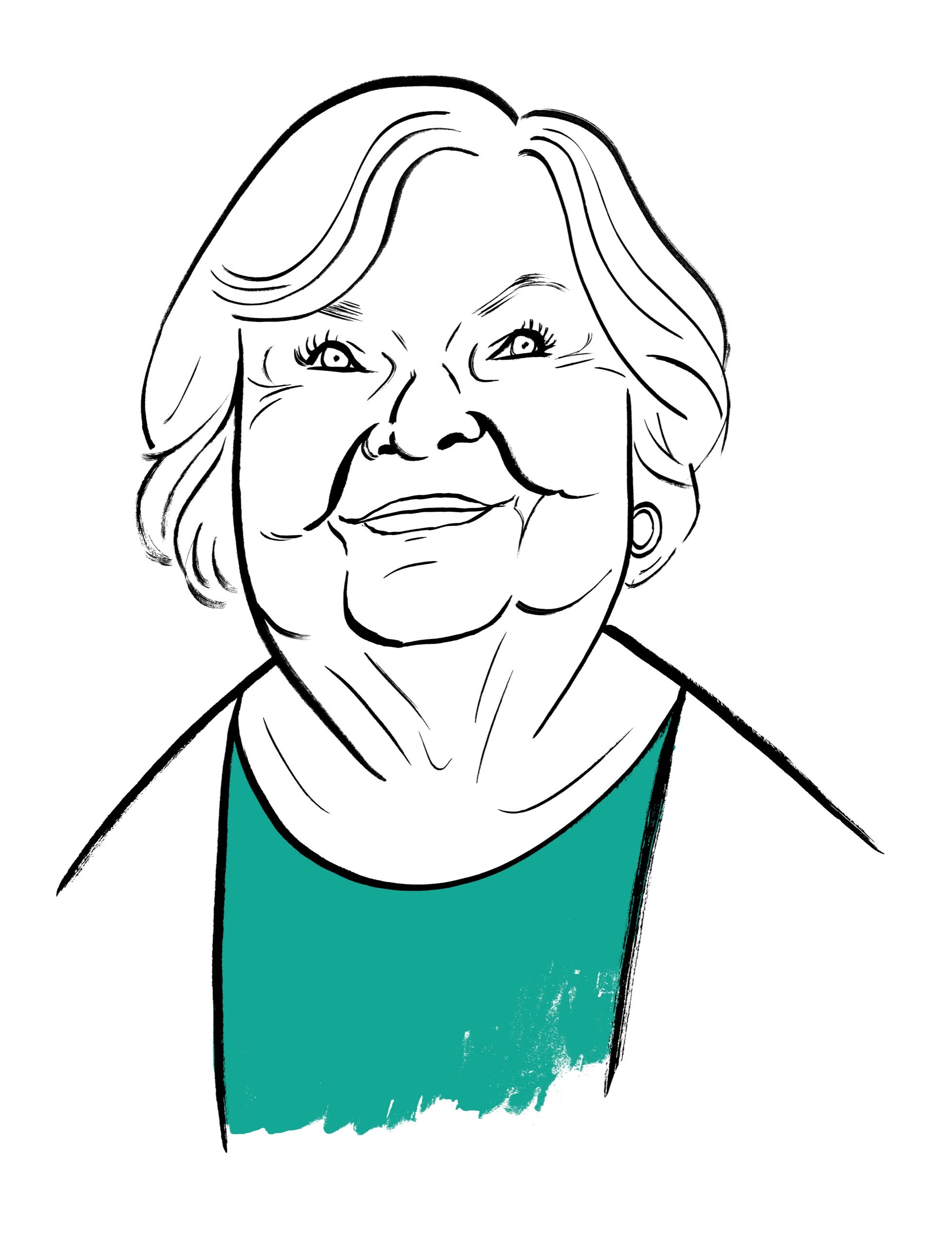The other Friday, in a Hawaiian-themed apartment complex in the San Fernando Valley (burbling mini-waterfall, tiki-hut-style patrol booth), June Squibb was puttering around her cozy two-bedroom. The actress, who is ninety-four, has lived in the complex since the early two-thousands. “They brought me out to Los Angeles from New York for the première of ‘About Schmidt,’ ” she said, referring to the 2002 Alexander Payne film, in which she played Jack Nicholson’s wife. “And then my agent got me ‘ER,’ and I just kept getting work.” Squibb’s robust orange tabby, Billy Bob, wandered by and rubbed against her shin. Her other feline, Mr. Rose, was dozing in the back of the apartment. “We have twenty-three spots for the cats around the house,” Kelly Sweeney, Squibb’s longtime assistant, said. “Little beds and stuff.”
In sporty black sneakers, with her hair in a bob, Squibb radiated cheerful capability. She grew up in a small town in Illinois, the daughter of an insurance salesman and a piano teacher. She knew early on that she wanted to be in show business—“since I came out of the womb,” she said. At nineteen, she joined the Cleveland Play House to perform in musicals. “A lot of people came out of there, like Dom,” she said, gesturing at an Al Hirschfeld caricature of the late Dom DeLuise, her good friend, which was framed on the wall. She ended up in New York, where she appeared on Broadway and off. “I was a comedienne,” she said.
Then, in the nineteen-sixties, she met the director and acting teacher Charles Kakatsakis, who became her second husband and the father of her son, Harry. “He convinced me that I could be a really fine actress,” she said. Though she was already in her late thirties, Squibb began taking classes with him. It wasn’t easy. “All the kids were younger than me, and they knew me as Charlie’s wife,” she said. “I would scream and cry, but he’d say, ‘You’re doing it!,’ and, boy, he got me to do it!” She finally began working in film when she was around sixty—a run that has included an Academy Award nomination for Best Supporting Actress, in 2014, at the age of eighty-four, for her role as a salty matriarch in another Payne movie, “Nebraska.” (Kakatsakis passed away in 1999.)
It was lunchtime, so Squibb and Sweeney ventured out to a local Japanese restaurant to meet with Zoë Worth, a ponytailed producer in her thirties. Squibb had befriended Worth while making “Thelma,” an action comedy that Worth produced, in which Squibb plays the titular character: a grandmother who gets taken in by a phone scam to the tune of ten thousand dollars and decides to go on a quest to recover the money, with the help of a widower played by Richard Roundtree. The movie was the début feature from the director Josh Margolin, who based the character on his own grandmother (also named Thelma, and, at a hundred and three, still with us). Margolin had wanted Squibb for the role, but had been unsure how to get the script to her, until a friend of his sister’s, the actress Beanie Feldstein, intervened.
“Beanie and I had done ‘The Humans’ together,” Squibb said, referring to the 2021 drama. She took a bite of pork gyoza. “We became close friends. We maintained a text tree or whatever you call it.”
Sweeney broke in: “And then we went to her wedding”—Feldstein married her girlfriend, Bonnie-Chance Roberts, in 2023—“and everybody Beanie’s age knew about it. They said, ‘You’re going to be Thelma! ’ ”
“I haven’t met the real Thelma, but we both like cop shows, so I told Josh to tell her which cop shows are my favorite, and she told him to tell me hers,” Squibb said. “ ‘FBI’ on Tuesdays, on CBS, is the best. I’d love to be on it, more than anything.”
“What’s the holdup?” Worth asked. “When we get home, let’s start IMDb-ing, let’s send out a couple of notes.”
“June likes these shows because she likes justice,” Sweeney said. “She’s like Thelma.”
“I related to the character immediately,” Squibb said. “Her strength, and her decision—‘I’m going to get the money back.’ And she does it!”
Sweeney pulled out her phone and zoomed in on a black-and-white picture of Squibb as a child, wearing boots and a dress. “I was awful,” Squibb said, laughing. “I would stand in my yard and I’d say, ‘Anybody who comes in here, I’m going to beat them up!’ ”
She sighed. “When you get to be my age, you lose a lot of friends,” she said. Roundtree had died in October, at eighty-one. “That hurt a lot,” she said. “He showed nothing when we were working—he was strong. But they told us it was a very fast-acting cancer.”
Roundtree’s five children were going to come to Sundance, where “Thelma” was premièring. Squibb needed something to wear for the big event. Grabbing her cane, she got up to head to the clothing shop next door. “Anything bright red would be good,” she said. ♦

